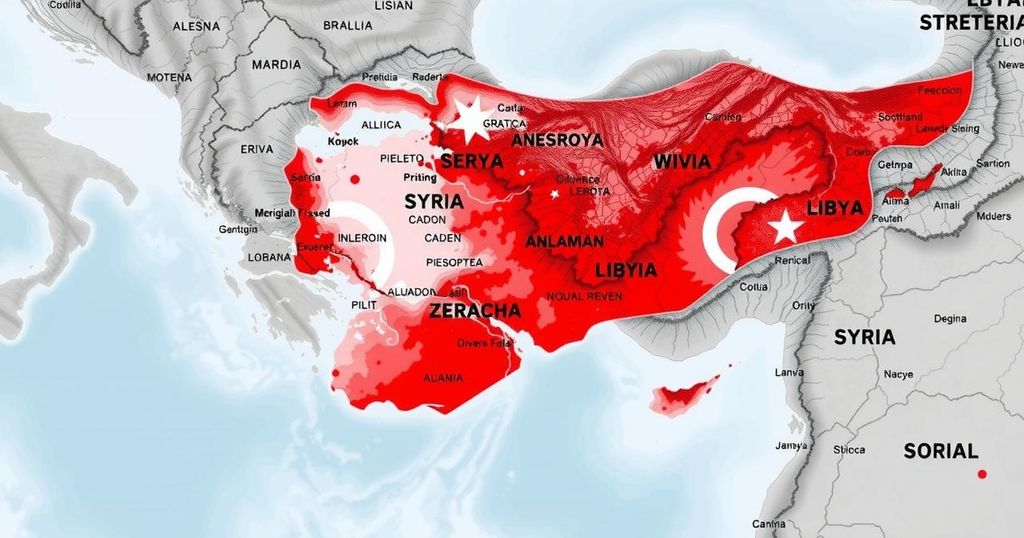Geopolitical Ripples: Assad’s Fall and Russia’s Engagement in Libya

The ousting of Bashar al-Assad in Syria has prompted Russia to bolster its support for Khalifa Haftar in Libya, where military assets are being relocated. The interconnectedness of both regions’ regimes raises concerns over burgeoning Russian influence and the implications for Western powers amidst ongoing illicit networks linking the two leaders. This geopolitical realignment may affect regional stability across the Mediterranean and beyond.
The ousting of Bashar al-Assad from power in Syria has had significant repercussions that extend to Libya, as Russia allies itself with Khalifa Haftar amid increased military activity in the region. Reports emerged shortly after Assad’s departure indicating that several officials loyal to him had taken refuge in Libya’s Benghazi. This coincided with a surge in air traffic between Syria and Libya, signaling Russia’s strategy to relocate military resources in response to its operational challenges in Syria. The Kremlin’s increased contact with military leaders in Libya highlights their intent to secure influence over strategic naval access points, particularly around Benghazi.
As Russia reallocates military assets from Syria, including naval forces from the Tartus base, it aims to strengthen its presence in Libya, which is viewed as an entry point into Africa. The historical connection between dictators in Syria and Libya, particularly through Khalifa Haftar, reinforces the Kremlin’s interests. Haftar, leveraging his ties with the Assad regime, has built an extensive network of influence and control in eastern Libya. The relationship between Haftar and Moscow continues to grow, posing concerns for Western intelligence agencies, which remain wary of Haftar’s role as a potential Russian proxy.
Additionally, the illicit activities linking the two regions are highlighted by the operations of the Cham Wings airline, accused of facilitating human and drug trafficking at the behest of the Haftar family. Despite substantial evidence of Haftar’s connections with Russia, Western powers maintain a paradoxical stance towards him, viewing him as a necessary partner in stabilizing Libya while independent actors on the ground continue to maintain influence. The complex dynamics of foreign involvement culminate in the intertwining of Russian and Turkish interests in Libya, with both nations competing for dominance despite supporting opposing sides.
As the geopolitical landscape shifts with Assad’s fall, analysts caution about the potential ramifications in other conflict-ridden regions, given Libya’s role as a critical hub for arms and military equipment transfers.
The article focuses on the geopolitical changes resulting from the recent upheaval in Syria, specifically the removal of President Bashar al-Assad and its implications for Libya. It emphasizes Russia’s repositioning as it seeks to consolidate its presence within the region, particularly through its support for Khalifa Haftar, a powerful figure in Libya. The text highlights the historical connections between Assad and Haftar, suggesting the fortification of Haftar’s position in the wake of Assad’s ouster. Furthermore, it touches upon the strategic importance of Libya as a gateway for Russian influence in Africa and ongoing illicit networks associated with both regimes.
In conclusion, the fall of Bashar al-Assad has initiated a significant realignment of forces across the Mediterranean with Russia seeking to fortify its influence in Libya through Khalifa Haftar. The increase in military assets being transferred to Libya, combined with the historical connections between the regimes in Syria and Libya, signals a potential shift in regional power dynamics. As foreign interventions continue to shape the conflict landscape, the repercussions of this realignment may arise not only in Libya but in neighboring conflict zones as well.
Original Source: www.france24.com







